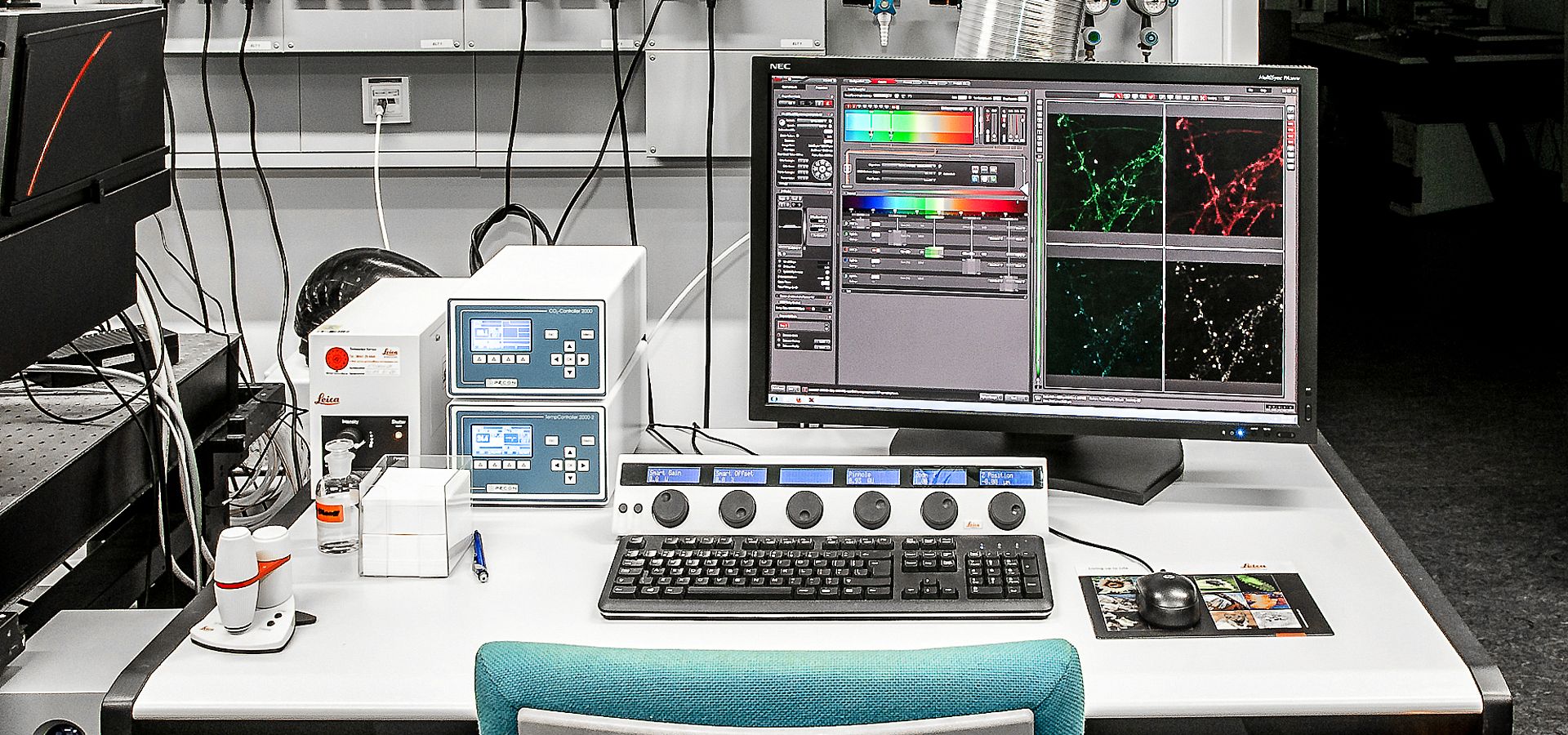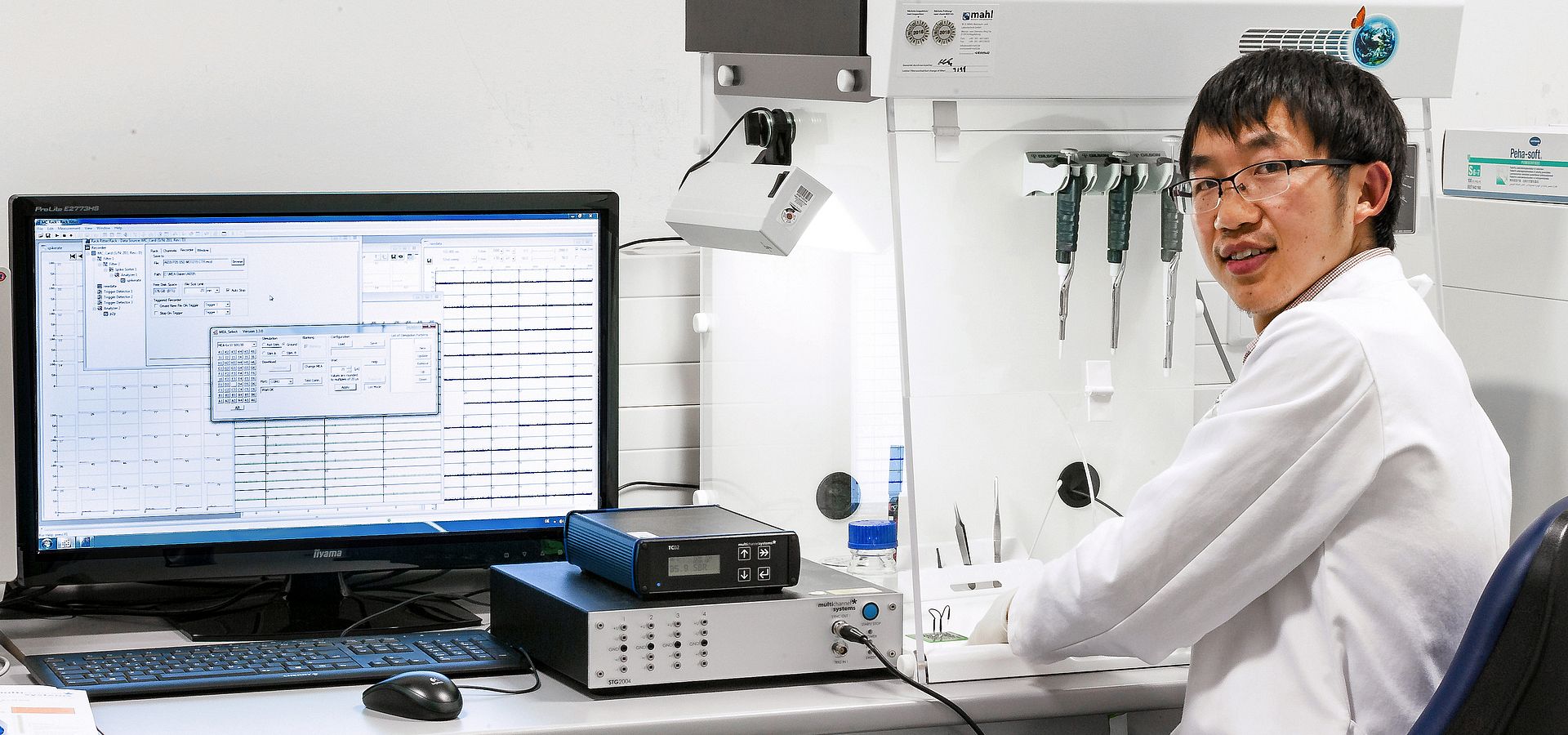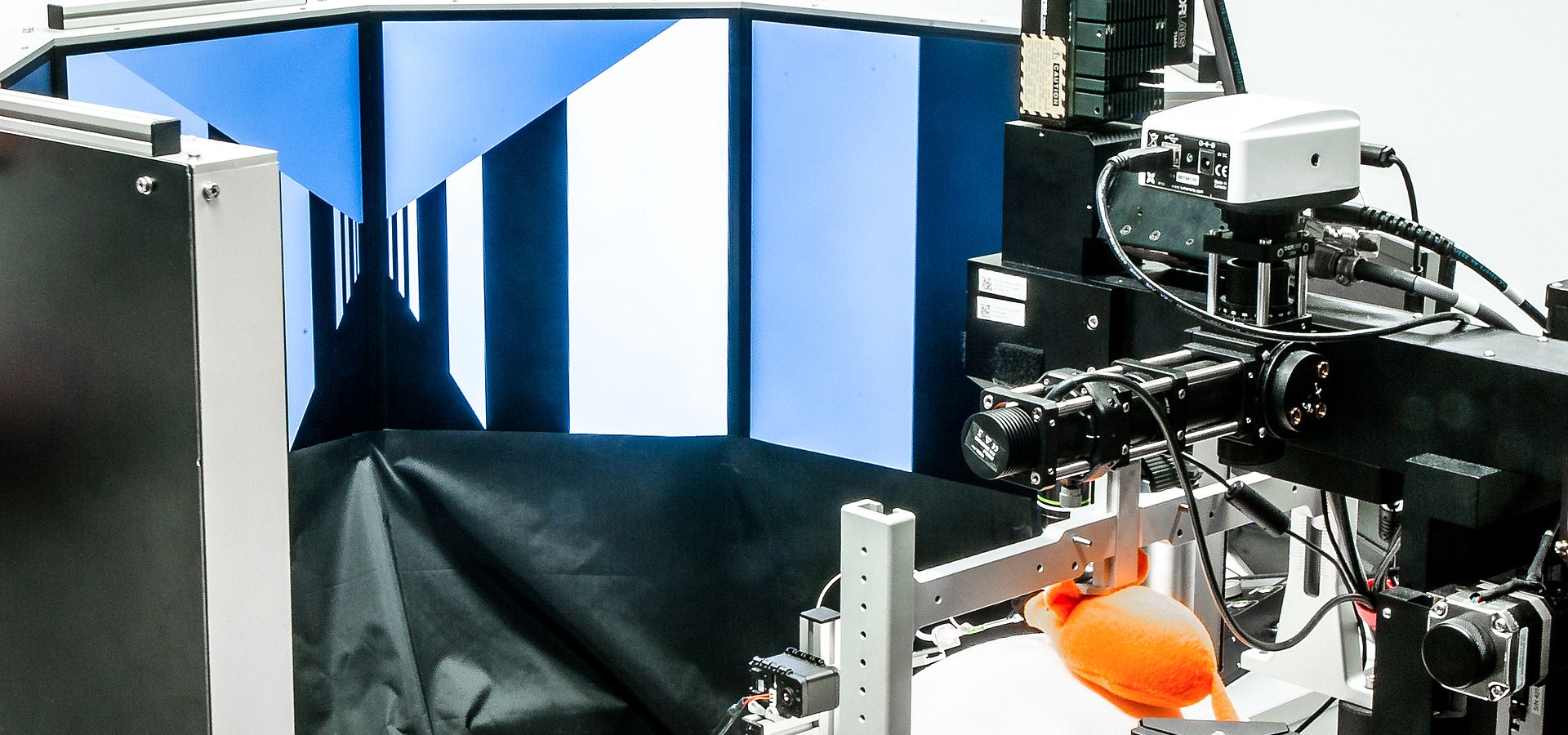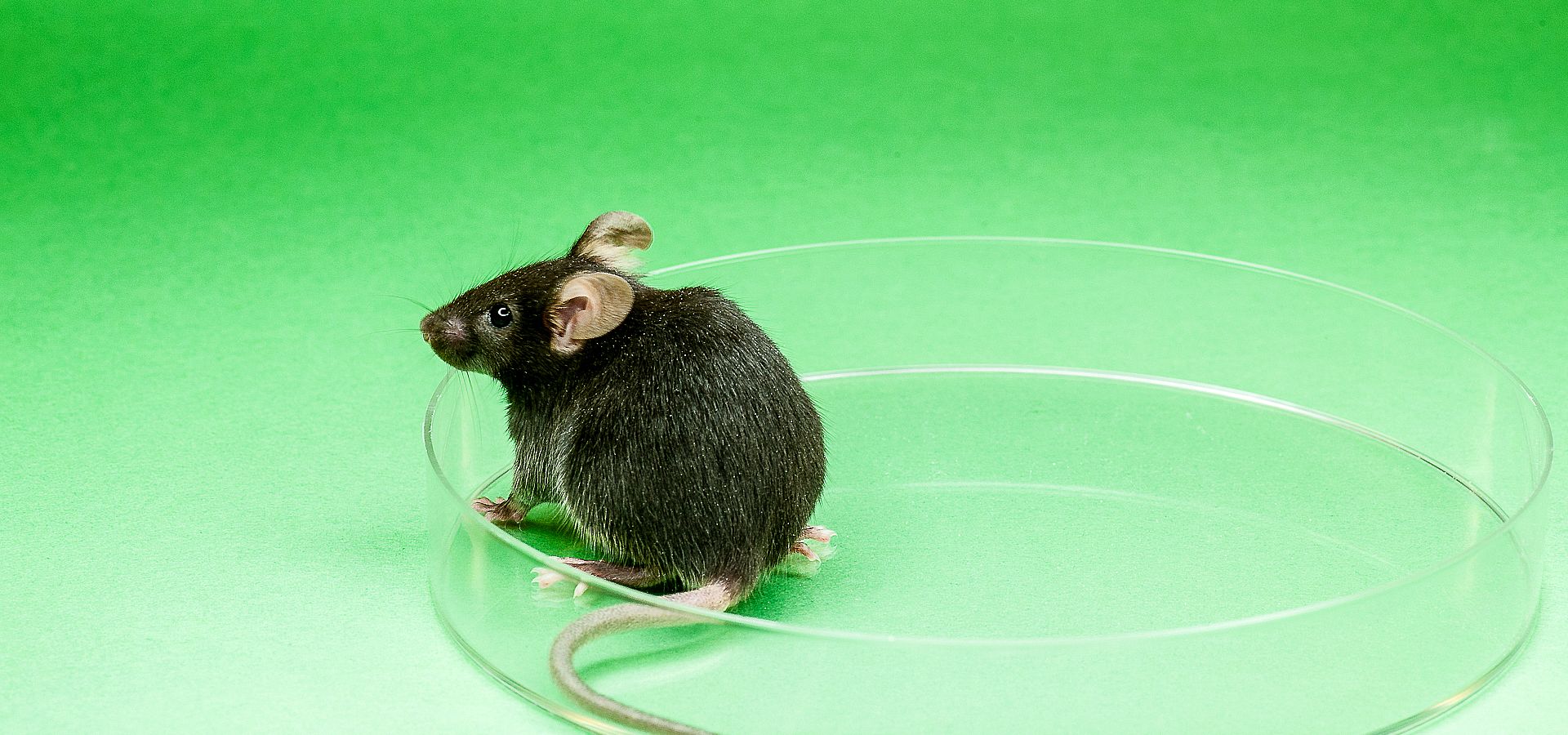Issues to consider before applying
The Integrative Neuroscience programme in Magdeburg is unique in providing comprehensive training in all areas of modern neuroscience: molecular, cellular, systems, behavioural, and clinical. The intensive and challenging coursework covers the full range of topics from molecular to behavioural approaches to neuroscience research. In addition, students 'rotate' through three programme labs in order to become familiar with different research areas and to select a lab for thesis research. The Integrative Neuroscience programme also offers advanced courses on topics of special interest to current research.
Because of the interdisciplinary nature of modern neuroscience, our students have diverse backgrounds in physical and/or biological sciences. Accordingly, a B.Sc. degree in a relevant field (physics, biology, medicine, mathematics, and others) from an internationally recognised university is required for admission. Students with other degrees and with a sufficient number of courses in biology, physics, inorganic and organic chemistry, and calculus may be considered on an individual basis. In many cases, the admission committee will conduct a phone or skype interview in order to determine suitability for the programme.
Prerequisites for admission
'Hard' prerequisites for admission include:
- A first degree in a relevant field (completed or about to be completed).
- Proof of English Language Proficiency (non-native speakers).
Because of the interdisciplinary nature of modern neuroscience, our students have diverse backgrounds in physical and/or biological sciences. Accordingly, a B.Sc. degree in a relevant field (physics, biology, medicine, mathematics, experimental psychology, and others) from an internationally recognized university is required for admission. Students with other degrees and with a sufficient number of courses in biology, physics, inorganic and organic chemistry, and calculus may be considered on an individual basis.
In addition to a strong academic background, we also expect future students to show:
- Particular affinity to neuroscientific research,
- Particular intellectual abilities,
- Other important personal characteristics (relevant to a research career).
These 'soft' prerequisites are assessed on the basis of the application documents, particularly any past qualifications, activities, or achievements described in the “Statement of Purpose” or “Curriculum vitae”.
Selection is based on a combination of academic strength and 'soft' criteria. This flexible approach to admissions serves both applicants and the programme well. In the past, 95% of admitted students have graduated successfully (2008 to 2016).
Criteria for admission
The admissions committee evaluates applications in two rounds.
Firstly, the admissions committee assesses the strength of academic background (as evident from degree and course transcripts) and three additional criteria (as evident from “Statement of purpose” and “Curriculum vitae”):
Particular affinity to neuroscientific research (documented by past qualifications, activities, or achievements).
Particular intellectual abilities (documented by past qualifications, activities, or achievements).
Other important personal characteristics (relevant to a research career).
Secondly, if the admissions committee gained a favorable impression of the academic background and qualifications of a candidate, an interview is scheduled (in person or by phone/skype).
The purpose of the interview is to confirm that you understand the nature of the programme (i.e., what it does and does not offer), that you are specifically interested in an integrative neuroscience programme (i.e., rather than a more focused programme), and to identify any areas in which you may want to get further academic preparation (i.e., how to best use the remaining time before admission).
Application documents
Your application consists of the following documents:
- Cover letter with statement of purpose (< 500 words). Please explain as clearly as possible why you wish to study neuroscience in Magdeburg.
- Curriculum vitae (one page).
- Authenticated copy of academic transcript with grades (transcript of records, Studienbuch).
- Authenticated copy of degree certificate (for applicants from a non-EU country). Applicants from an EU country must prove min. 210 CP out of 240 CP.
- Proof of Englisch proficiency (except applicants from Australia, Canada, Ireland, New Zealand, Singapore, UK and USA).
Several organizations offer tests of English proficiency:
www.de.toefl.eu/
www.ets.org.toefl
www.ielts.org/
www.cambridgeesol.org/
The minimum requirements are 79 points (TOEFL iBT), 213 points (TOEFL CBT), 6.5 points (IELTS), grade C (ESOL), 59 points (Pearson PTE), UniCert III & IV
- Optional letters of recommendation (at most two).
Please also see the website of the universities´ Office of Academic Affairs.
* * * Uni-assist portal will open for application soon * * *
The application period for admission to the fall semester 2023/24 starts form January 4 until March 15, 2024 via uni-assist.
By May 15, 2024, most applicants receive either a provisional letter of admission, an invitation for an interview, or a letter of rejection.
Admission is based on applicants’ academic achievements and their expected contribution to the programme. Up to 40 students will be admitted each year.
On two weekends in May/June 2024, prospective students are encouraged to visit Magdeburg and the neuroscience campus. Details to be announced.
IF YOU HAVE QUESTIONS OR NEED FURTHER INFORMATION, PLEASE CONTACT OUR PROGRAMME COORDINATOR:
neurosci(at)ovgu(dot)de




